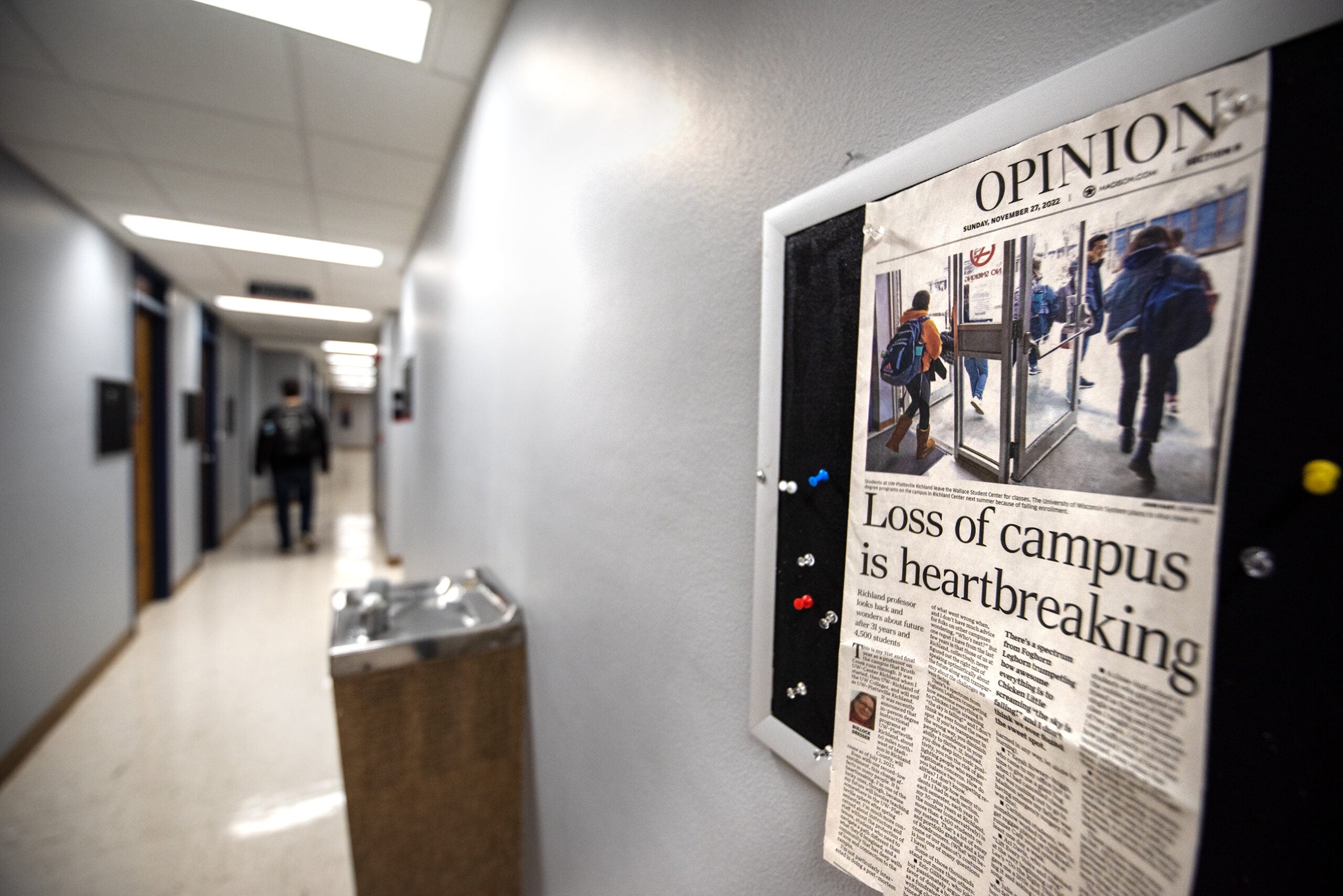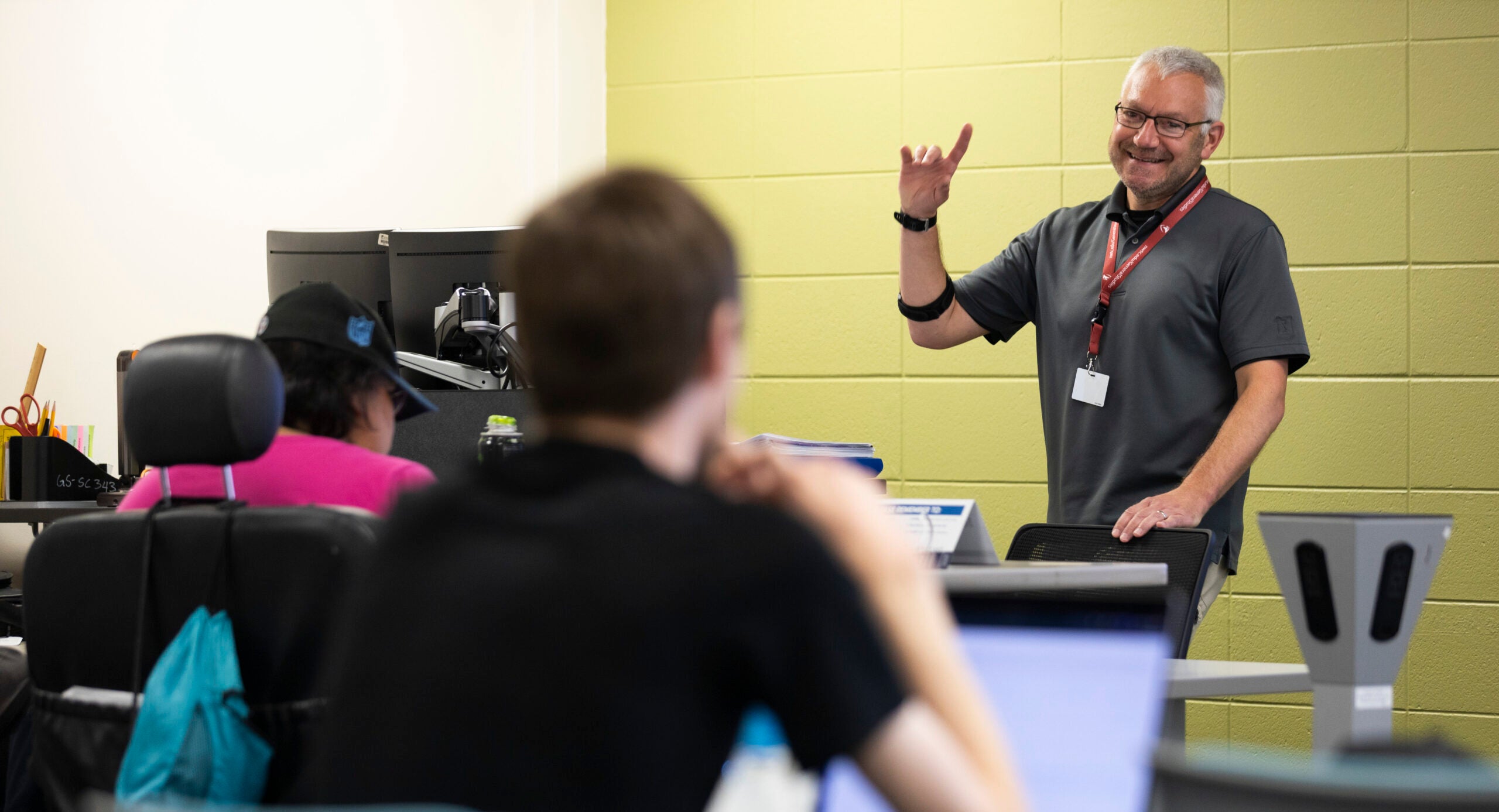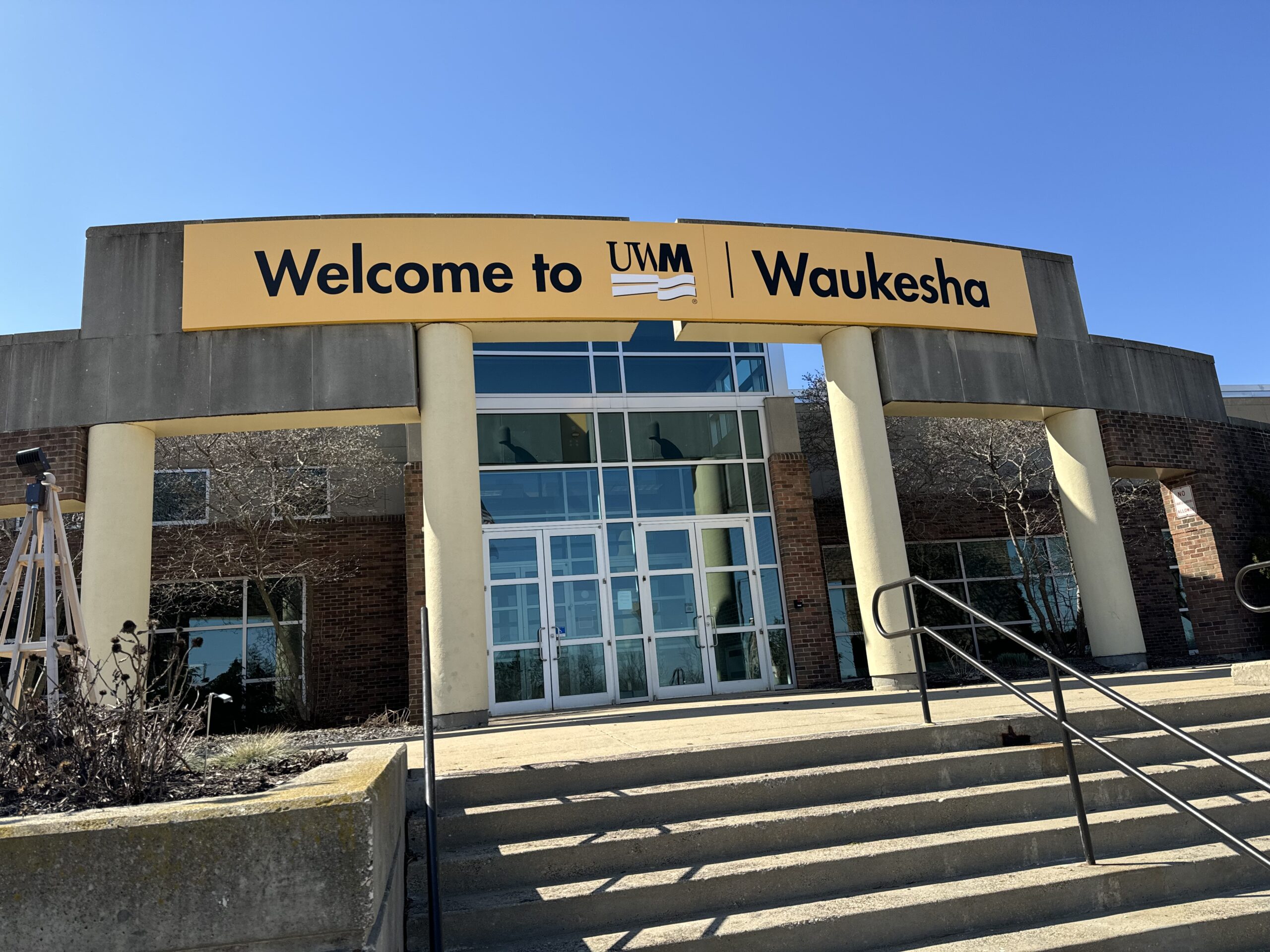While public perceptions of the value of going to college have diminished in recent years, experts argue the lifelong earning potential for someone with a bachelor’s degree is worth the investment.
That was the message Wednesday from a forum about the future of flagship universities held at the University of Wisconsin-Madison. While ideological battles over diversity programs, curriculum and funding continue, universities must forcefully advocate for their value to society, the panelists said.
“The value proposition of higher education is in question more than I would argue it ever has been before,” said Taylor Odle, a professor in UW-Madison’s department of educational policy studies.
News with a little more humanity
WPR’s “Wisconsin Today” newsletter keeps you connected to the state you love without feeling overwhelmed. No paywall. No agenda. No corporate filter.
“I do not think that you could present any compelling evidence to suggest that a college education isn’t one of the most important investments a student or family could make,” he said. “The benefits that yields to individuals, the benefits that yields to society are kind of uncontested.”
Odle pointed to a 2019 study from the Georgetown Center on Education and the Workforce that estimates a degree from UW-Madison is worth approximately $1.2 million in earnings potential over 40 years.
“Graduates within 10 years earn 186 percent, or almost double of what they paid to attend,” he said. “Our six-year graduation rate is 90 percent, compared to a national average of 55 percent. And median earnings of graduates are around $71,000.”
Yet polls continue to show that Americans are losing faith in higher education. Odle pointed to a 2023 poll from the Wall Street Journal and NORC Center for Public Affairs Research at the University of Chicago that found 56 percent of respondents said they believe earning a four-year degree is not worth the cost, while only 42 percent said it is worth it.
“For the longest time we thought higher education was the goal, it was the summit,” said Elaine Povich, an education reporter for the nonprofit news organization Stateline, who was part of the panel. “Our children’s children were going to go to college because that was the epitome of success in America.”
But that’s no longer the case, she said.
“People are looking at it and saying, ‘Wait, I don’t need this anymore. I can be just fine, thank you. Besides which, it’s all indoctrination,’” she said.
A July 2023 Gallup poll found that only 36 percent of Americans had confidence in higher education, down from 57 percent in 2015. Much of the decline came among Republicans, who fell from 56 percent in 2015 to 19 percent in 2023.
David Weerts, a professor and associate vice provost at the University of Minnesota System, said universities have to acknowledge these realities.
“You need to be reengaged with different groups to address some people you might have profound moral disagreement with. And we are struggling to be honest with students that come who do see it very differently” and view universities as ideologically driven, he said.
“There’s this kind of idea that if we only told our story better, people would understand,” and legislators would increase funding, he said. “But when you look around, we probably spend more money than we ever have on billboards.”
“It really has to be a more transformational view around our role in the state and how we build relationships, frankly, with a lot of people that don’t trust us,” he said.
Povich agreed. She said going to college brings not just income, but lifelong friends and a network of other professionals.
“I would say to the people who have sat on their hands for a long time, get out there and talk about your side of the story. Even if it’s not just PR but in your communities, in your knitting circles or whatever, get out there and talk about it,” Povich said.
“The million dollar bonus for going to college over your lifetime is real,” she said.
Wisconsin Public Radio, © Copyright 2025, Board of Regents of the University of Wisconsin System and Wisconsin Educational Communications Board.







